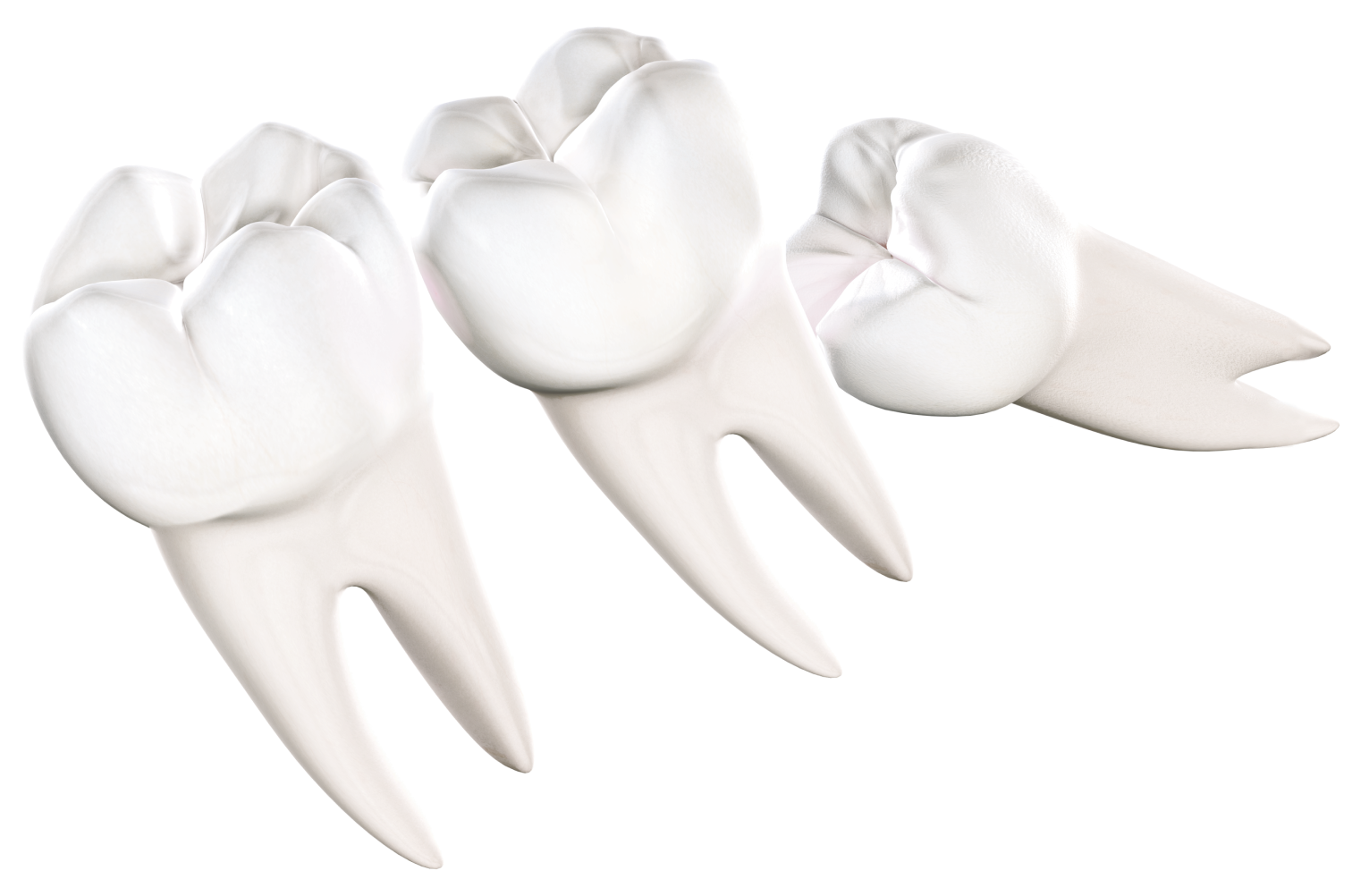Wisdom teeth, also called third molars, develop during the late teen or early adult years. The average mouth holds 28 adult teeth, and an additional four trying to squeeze in can cause issues.
Dentists recommend that you have wisdom teeth extracted as early as possible. Many dentists refer patients to an oral surgeon, like Dr. Stefanuto, because of his specialized training and experience in removing wisdom teeth and administering anaesthesia. Be sure to attend regular checkups with your dentist to track the development of third molars.
What Happens if You Never Get Wisdom Teeth Removed?
Every patient is different, although there are risks to all who leave wisdom teeth untreated. Some people never develop any wisdom teeth, some develop between one and four, and others can develop more than four. It’s important to attend regular dental exams so that your dentist can track their development.
When wisdom teeth go untreated, they can cause many issues. A common problem is impaction, which means that a tooth has become trapped beneath the gum. This can cause it to grow at an angle and shift multiple teeth out of alignment.
An impacted wisdom tooth is difficult to clean around, making it prone to infection. Over time, it may decay or cause cysts to form around it. Wisdom teeth have large, unpredictable roots that can damage the roots of other teeth and nerves in the jaw.
Wisdom teeth can cause many other problems, such as:
- Ongoing bad breath due to infection
- Swelling and pain in the back of the mouth
- Cysts or tumours that can also cause pain or infection
- Misalignment or shifting of your other teeth
- Damage to nearby nerves
If you or your child think it’s time to have wisdom teeth removed, call our office to schedule an appointment.
Why Should I Have My Wisdom Teeth Removed
Wisdom teeth are the last teeth to erupt within the mouth. When they align properly and erupt into a FUNCTIONAL AND CLEANSABLE POSITION, wisdom teeth do not have to be removed. Unfortunately, this is RARE. The extraction of wisdom teeth is necessary when they are prevented from properly erupting within the mouth. They may grow sideways, only partially emerge from the gum, or can even remain trapped beneath the gum and bone. Impacted teeth can take many positions in the bone as they attempt to find a pathway that will allow them to successfully erupt. An impacted tooth simply means that it is “stuck”.
These poorly positioned impacted teeth can cause many problems. When they are partially erupted, the opening around the teeth allows bacteria to grow and will eventually cause an infection. This can result in swelling, stiffness, pain, and/or illness. Additionally, tumours or cysts can form around the impacted wisdom teeth, resulting in the destruction of the jawbone and/or healthy teeth. Removal of the impacted teeth usually resolves these problems. EARLY REMOVAL is recommended to avoid complications and the risks of the procedure are less in the younger patient (BEFORE THE AGE OF 24). Risks will be discussed at your consultation with your surgeon.
The Wisdom Tooth Extraction Process
We will outline your treatment plan during your first visit and may take 3D scans of your mouth. If you undergo IV sedation, you will sleep comfortably during the procedure and wake up once it’s over. A responsible adult must be in the office during the procedure, drive you home, and stay with you for 24 hours.
During the procedure, your surgeon will safely extract wisdom teeth that are poking out of the gums using forceps. Impacted wisdom teeth will be uncovered using small incisions, then removed. You will rest in our comfortable recovery room until the anaesthesia wears off and you are ready to go home. Our office provides post-operative instructions to guide you through a smooth and speedy recovery.
Pain medication and ice packs help manage swelling and discomfort. Most patients return to their normal routines several days after surgery.
Apex Surgical has policies in place for surgical specimens. Extracted teeth are considered potentially infectious materials and are not returned to the patient.
Types of Anaesthesia
We offer anaesthesia options to keep you as comfortable as possible during your surgical procedure.
